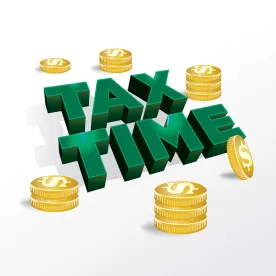Despite the growth of crypto-currencies in number and use, relatively little guidance has been provided by the Internal Revenue Service (IRS) to date related to the federal income taxation of such crypto transactions. Back in 2014, the IRS issued Notice 2014-21 which addressed a few fundamental issues, notably as confirming the status of crypto-currency as property for federal income tax purposes rather than a currency (a “fiat currency” in crypto circles). Some of the consequences of this determination were also addressed in Notice 2014-21, including that when virtual currency received or exchanged for goods and services or exchanged for another form of crypto or fiat, such exchange is considered a taxable event (with the gain measured in U.S. dollar (“USD”) equivalency). The IRS also indicated in this guidance that the character of gain or loss recognized on an exchange of crypto is based on general federal tax principles, including the holder’s holding period for the crypto and whether the holder holds the crypto as a capital asset (e.g., whether the crypto is considered inventory or the holder is a dealer).
Notwithstanding the basic guidance provided in Notice 2014-21 , significant issues federal tax issues were left unresolved, including the method for determining a taxpayer’s basis in crypto (other than the fact it should be the fair market value of the crypto upon receipt as measured in USD). For example, if crypto is traded on several exchanges, the crypto may have different exchange rates against fiat at a particular moment, depending on the particular exchange. How then does the taxpayer determine which reference price is fair market value if the crypto is exchanged at such a time? In addition, taxpayers may have accumulated identical coins on various dates. When a portion of such fungible coins are disposed of in a taxable transaction, how should the taxpayer allocate its gross basis to the coins which were disposed? For example, does the taxpayer utilize a FIFO (first in first, first out) or LIFO (last in last, last out) basis? May specific identification principles such as those that apply to fungible lots of shares be utilized with virtual currencies? These and other tax issues remain unresolved to date.
Recently, IRS has indicated that additional guidance is forthcoming. Specifically, IRS Commissioner Charles Rettig issued a letter to Representative Tom Emmer, a member of the Congressional Blockchain Caucus, indicating that IRS will soon be publishing additional guidance on the federal tax treatment of crypto-currency transactions. In response to Rep. Emmer’s request for additional guidance on the tax treatment of crypto transactions, Comm. Rettig stated: “I share your belief that taxpayers deserve clarity on basic issues related to the taxation of virtual currency transactions and have made it a priority of the IRS to issue guidance. Specifically, your letter mentions (1) acceptable methods for calculating cost basis; (2) acceptable methods of cost basis assignment; and (3) tax treatment of forks. We have been considering these issues and intend to publish guidance addressing these and other issues soon.”
No word on when this guidance will be issued and whether it will be in the form of a notice, proposed regulations or otherwise.





 />i
/>i

